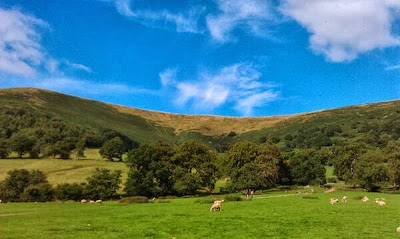Left: M2 Medway Services Eastbound
2013
Oil on shellac on linen 180 × 140 cm
Thank you to Edward Chell for
alerting me to his forthcoming book, Soft
Estate, featuring his words and artwork and also including an essay contributed by Richard Mabey.
The title derives from the
Highways Agency description of the natural habitats on the edge of motorways
and trunk roads. The book, which
will be distributed by Cornerhouse, looks at how these borders offer a refuge for wildlife and
a modern form of wilderness. In Edward's words:
“While 18th Century
tourists travelled to areas such as the Lake District to capture images of wild
places, in today’s countryside, uncontrolled wilderness only springs up in the
margins of our transport networks and the semi-derelict grid plans of industrialised
corridors. These soft estates invite a new kind of tourist, new ways of looking
and new forms of visual representation.”
Alongside the publication of
the book, the Bluecoat arts centre in Liverpool is holding a Soft Estate exhibition featuring the work of Edward and a number of other artists:
“Soft Estate features new
works by Edward Chell that explore the interface between history,
ecology, roads and travel. In paintings, prints, and objects, made using a
variety of materials including road dust and etched car parts, he investigates
motorway landscapes, linking these contemporary environments with
18th century ideas of the Picturesque.
Other artists interrogating
similar ‘edgelands’ – familiar yet ignored spaces neither city nor countryside
– exhibit alongside and in conversation with Chell. They present juxtapositions
commonly experienced in edgelands, like beauty and pollution, wilderness and
human agency”.
I will be reviewing the book in
more detail in due course.



.jpg)

.jpg)